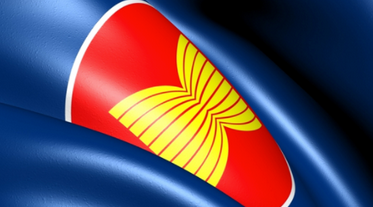Jakarta/Moscow — In a marked geopolitical pivot, key Southeast Asian nations are intensifying their partnerships with Russia, signaling a shift in the region’s diplomatic posture. Indonesia and Malaysia, two of ASEAN’s most influential members, have both demonstrated growing alignment with Moscow in recent months, emphasizing economic collaboration and foreign policy independence.
Indonesia Chooses Moscow Over G7
In a notable departure from the Western diplomatic calendar, Indonesian President Prabowo Subianto declined to attend last month’s G7 summit in Canada, opting instead to visit Russia to mark 75 years of bilateral relations. His meeting with President Vladimir Putin was described as “intense, warm, and productive,” covering cooperation in trade, agriculture, and investment.
“We’ve seen significant improvements across all sectors,” Prabowo stated during a press conference alongside Putin in St. Petersburg. His rhetoric further signaled a shift, praising Russia and China as nations free of “double standards” and identifying Indonesia as a “defender of the oppressed and disadvantaged.”
Malaysia’s Repeated Moscow Engagements
Echoing Indonesia’s stance, Malaysian Prime Minister Anwar Ibrahim made his third trip to Russia in two years. During a 2024 visit to Vladivostok, Anwar lauded Putin’s “vision and leadership” and commended Russia’s resilience under Western sanctions. He characterized Russia’s “soft power” as “remarkable,” asserting it had gained global admiration.
Both leaders have recalibrated their nations’ positions since their initial condemnation of Russia’s invasion of Ukraine in 2022. As of mid-2025, both now maintain neutral official positions but have issued increasingly pro-Moscow public statements, reflecting broader geopolitical calculations.
Strategic Realignment Amid Diminished Western Influence
Experts point to a deliberate non-aligned foreign policy strategy, with ASEAN powers pursuing balanced ties with both Russia and China. According to Dr. Ian Storey of Singapore’s ISEAS–Yusof Ishak Institute, this shift underscores frustration with what is seen as an unreliable U.S. foreign policy, especially since President Donald Trump’s return to the White House in January 2025.
Trump’s renewed push to withdraw from global institutions and perceived support for controversial allies in the Middle East have contributed to a growing anti-Western sentiment, especially in majority-Muslim nations like Indonesia and Malaysia. A recent study by ISEAS confirms that Western backing of Israel in ongoing Middle East conflicts has intensified public skepticism of Western leadership.
Economic and Energy Partnerships on the Rise
Despite international sanctions, Russia’s trade with ASEAN surged to $22 billion in 2023, marking a 14% year-over-year increase. Indonesia and Malaysia are spearheading this growth, pursuing expanded cooperation in energy, arms imports, and infrastructure.
- Indonesia is partnering with a Russian investment fund to implement €2 billion worth of infrastructure and energy projects.
- Malaysia and other ASEAN nations are increasing exports of household appliances and machinery to fill gaps left by Western firms in the Russian market.
- Vietnam, meanwhile, is restarting its civilian nuclear program with the help of Russian firms, having shelved it post-Fukushima.
- An ASEAN–Russia nuclear cooperation exhibition was inaugurated in Jakarta by ASEAN Secretary-General Kao Kim Hourn earlier this year.
Regional Realignment or Opportunism?
While leaders like Prabowo insist they seek friendship with “everyone,” regional media outlets remain skeptical. The Jakarta Post recently editorialized that Indonesia’s claim of neutrality is “not credible,” interpreting Prabowo’s statements in Russia as thinly veiled criticism of the U.S.
Security expert Zachary Abuza describes Russia as appealing to Southeast Asian elites for its perceived independence and resistance to Western dominance. “Russia is trying to rewrite the rules—and in this moment, that message is resonating in ASEAN capitals,” he said.
A Multipolar Moment
As global power dynamics continue to evolve, ASEAN’s two largest Muslim-majority nations appear determined to forge multi-vector foreign policies that reduce dependency on the West. Whether this shift represents a lasting realignment or strategic opportunism remains to be seen—but for now, Moscow has found fertile ground for influence in Southeast Asia. (zai)

